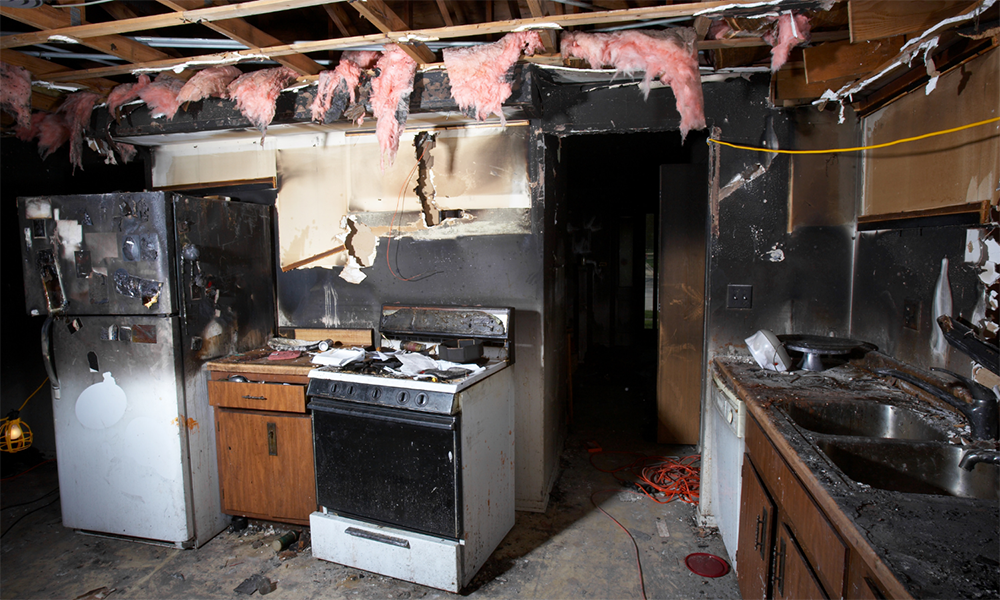One of the most critical areas needing to be cleaned after a wildfire evacuation is the home kitchen. Many foods may have spoiled without refrigeration and/or been damaged from exposure to heat or smoke. Plan ahead and have the necessary supplies when returning to your home.

Gathering supplies to clean your kitchen after a wildfire
Here are some items to consider:
- Potable water for drinking and cleaning. It may be necessary to bring a supply of water for both drinking and cleaning if you are uncertain about the availability of water in your home. Various sizes of drinking water containers are generally available at most grocery stores.
- Baking soda and dish soap
- Rubber gloves and/or disposable gloves to wear while cleaning out refrigerators and freezers
- Paper towels for cleaning Heavy-duty trash bags
- Safety masks in case of a strong smoke odor and/or smoke and ash particulates in the air
- Camera to document contents of refrigerators and freezers
Cleaning out refrigerators and freezers after an extended time without power
Perishable foods kept at room temperature provide an environment well suited for the rapid growth of microorganisms – including types that cause food spoilage and foodborne illness. Removing those spoiled food items and properly cleaning the interior surfaces of the refrigerator and freezer is a priority after returning to your house.
Here are some tips to clean out your fridge:
- Use heavy-duty trash bags for gathering spoiled food items and transporting them to the discard site. Don’t overfill bags to prevent leakage.
- Liquid residues may have dried in hard-to-reach areas of refrigerator and freezer shelving. If shelves and drawers are removable, take them out to immerse in water and clean well.
- Clean inside surfaces with a solution of dish soap in water. For removing odors, use a mixture of two tablespoons of baking soda dissolved in one quart of warm water. Activated charcoal, available from aquarium or garden supply stores, placed in a shallow container inside the refrigerator may also help in removing odors.
- If you are considering discarding an appliance because of odors as a result of spoiled food, check with your insurance agent; insurance generally covers fire damage, not damage as a result of spoiled food.
Other Food-Related Issues to Consider
- Rinse herbs and garden produce very well under running water to remove ash; discard if exposed to fire-retardant.
- Run water in the kitchen sink to flush out water that has been sitting in pipes for an extended time.
- If you have any doubt about the safety of well water, samples may be tested at various labs including Colorado State University’s Environmental Quality Laboratory
Resources
For more information about food safety after a fire, please see CSU Extension Fact Sheet Food Safety Issues after a Fire
Disclaimer
Colorado State University, U.S. Department of Agriculture and Colorado counties cooperating. CSU Extension programs are available to all without discrimination. No endorsement of products mentioned is intended nor is criticism implied of products not mentioned.

